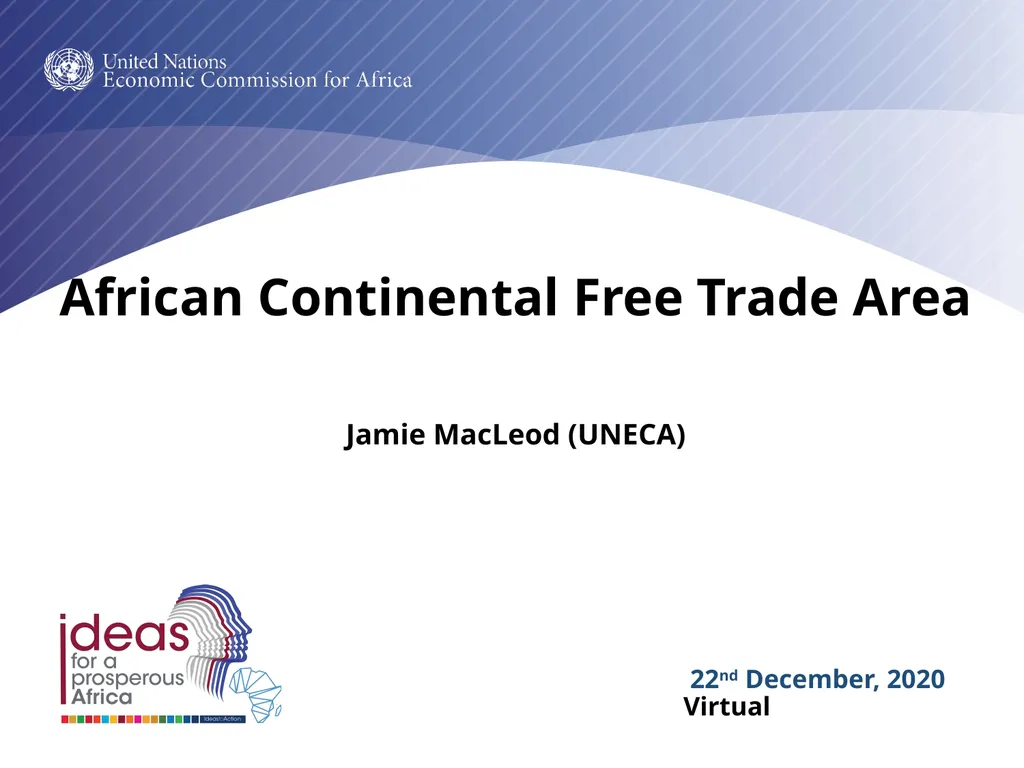
Author : briana-ranney | Published Date : 2025-05-24
Description: 22nd December, 2020 Virtual Jamie MacLeod (UNECA) African Continental Free Trade Area Rationale Consolidating a fragmented market Africa is a big market, fragmented into small pieces 22 African countries have populations under 10m Trade isDownload Presentation The PPT/PDF document "" is the property of its rightful owner. Permission is granted to download and print the materials on this website for personal, non-commercial use only, and to display it on your personal computer provided you do not modify the materials and that you retain all copyright notices contained in the materials. By downloading content from our website, you accept the terms of this agreement.
Here is the link to download the presentation.
"22nd December, 2020 Virtual Jamie MacLeod (UNECA)"The content belongs to its owner. You may download and print it for personal use, without modification, and keep all copyright notices. By downloading, you agree to these terms.













